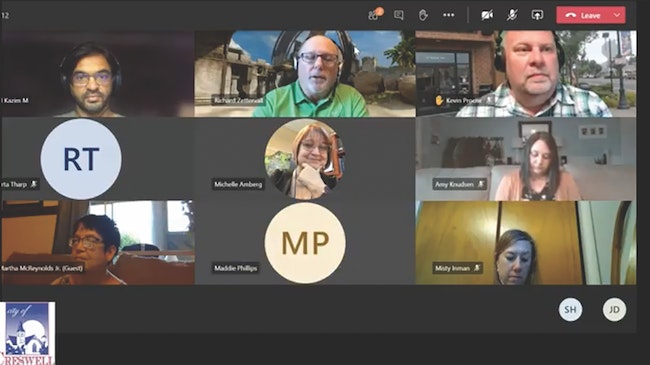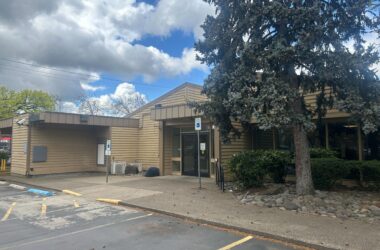
CRESWELL — Creswell City Council has been putting plans in motion to “build a more equitable and inclusive community” by working on a document to affirm that Creswell is an inclusive city, fine-tuning an ordinance OKing an equity commission, and is considering hosting town halls to help educate and engage the community in discussions about racism.
At Monday’s meeting, council heard from multicultural liaison and Creswell resident Kazim Zaidi, who works in the Human Rights and Neighborhood Involvement Team in the city manager’s office for the City of Eugene. He offered to assist the council in hosting virtual town halls, training and guidance around equity in the city.
The resolution draft states that the city recognizes Black, Indigenous and other People of Color (BIPOC) have suffered inequalities and renounces those practices; is dedicated to building a strong and vibrant community that promotes kindness, compassion and respect for everyone; that an equity commission be created; and that the city commits itself to embracing diversity.
Zaidi said he would also like to see Creswell host a virtual town hall-style meeting to give residents a toolkit to better understand the history of racism in Oregon. The town hall would also aim to equip residents to be better allies for people of color in standing up to both interpersonal and systemic racism.
There needs to be a “reckoning of our history,” Zaidi said.
The State of Oregon has a history of enacting racist policies that have left lasting harm on communities of color, including entering the Union as a “whites only” state in 1859, refusing to ratify the 14th and 15th amendments to the United States Constitution, and enacting black exclusion law.
In Oregon, there are “two versions of our history,” Zaidi said.
“It is easy to think there is no racism in Oregon because there aren’t many Black people,” Zaidi said, which is a sentiment he often hears. “Now, that isn’t by accident.”
And because of that lack of exposure to Black people in Oregon, “a lot of people who are not racist, that do not have a racist bone in their body, do not see racism occurring because it didn’t happen in front of them.”
He said that if racism doesn’t happen in front of you, which is less likely to happen if you do not know a person of color or are not one yourself, “you might think, ‘yeah, we beat this.’ There is also a narrative that goes from the abolition of slavery to the abolition of Jim Crow laws to the Civil Rights Movement to election of Black president, so we can say, ‘well, it looks like this is over.’”
That, he said, is one version of history.
“Sadly, underneath all of that, various forms of exclusion have been allowed to continue over time,” Zaidi said. “We have a system that is set up on exclusion. When you say someone is benefiting from racist system, they get defensive and say, ‘I don’t see color.’ That might sound like a positive sentiment but the problem is, if you don’t see color and if you don’t see race, you don’t see the deep historic problems that have been baked into our system.”
He said that racism is not a partisan issue, and that “we can all be anti-racist and that shouldnt say anything about any of our other convictions.”
Not being a racist means you are not going around perpetuating racism, he said, and “being an anti-racist means that one recognizes that there are deep racial inequalities in our society, that these are the sins of our forefathers, and that we need to find where those inequalities are and address the system that benefits some people more than others.”
“A lot of people are boxed in to believe that being anti-racist is against the political culture in which they operate,” Zaidi said. “I want to break down that barrier. If people think that because they are a conservative or belong to a certain faith denomination that they can’t be an anti-racist, that is really damaging and frankly untrue. We can all be anti-racist and that shouldnt say anything about any of our other convictions.”
Councilor Kevin Prociw mentioned the resolution didn’t include the word “race” in any of the descriptors.
“That was very deliberate on my part,” city manager Michelle Amberg said. “Race has an historic biological context that I don’t think we want to continue to promote. Ethnicity and culture are more correct terms.”
Councilor Martha McReynolds agreed. “Words define our world to a big degree,” she said.
Amberg explained that the word “race” was used to perpetuate a superior race and an unequal system. “White individuals — specifically white men — were thought of as the ‘scientifically superior race,’ so there became the ‘white race’ and then the ‘inferior races,’” she said.
“It’s tricky … you may find people with different opinions, ultimately more valid and more accurate form a social science and a biological science perspective and it’s what we want to see going forward,” Zaidi said.
The equity resolution will be brought to the Sept. 7 city council meeting for adoption, and the equity commission ordinance will be discussed again at the Sept. 28 city council work session.







